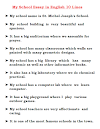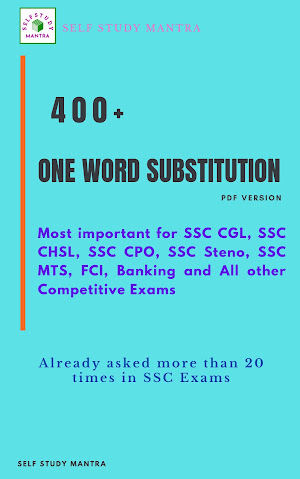Diwali Essay in English
Diwali Essay in English is one of the most important essay topics for students as this festival is celebrated across the country. On the occasion of Diwali students are asked to write essay on Diwali, so to help students, here we have written 6 sets of Diwali Essay in English 150 Words, 200 Words, 250 Words, 300 Words, 400 Words and 500 Words. Lets see these sets of Diwali Essay in English.
Diwali Essay in English 150 Words
Diwali, also known as Deepavali, is the Festival of Lights celebrated with great enthusiasm and fervor in India and by Indian communities worldwide. It symbolizes the victory of light over darkness and good over evil.
Homes are cleaned, and colorful rangoli designs adorn doorsteps. Oil lamps, known as diyas, are lit to welcome prosperity and happiness. Families exchange gifts and sweets, strengthening bonds.
The religious significance of Diwali varies across regions. In North India, it marks Lord Rama's return to Ayodhya after defeating Ravana. In South India, it's dedicated to Goddess Lakshmi.
Fireworks light up the night sky, creating a mesmerizing spectacle. Diwali transcends religious boundaries, fostering unity and diversity.
Diwali Essay in English 200 Words
Diwali, also known as Deepavali, is one of India's most significant festivals. Celebrated with immense zeal and fervor, it signifies the victory of light over darkness and good over evil.
Preparations for Diwali begin weeks in advance. Homes are thoroughly cleaned, and decorative rangoli designs are created at entrances. Oil lamps, candles, and fairy lights adorn homes, creating a magical ambiance.
The festival's religious significance varies across regions. In North India, Diwali commemorates Lord Rama's return to Ayodhya after defeating Ravana. In South India, it is dedicated to Goddess Lakshmi, the goddess of wealth and prosperity.
Diwali is a time for families to come together, exchange gifts, and share delicious sweets and meals. Fireworks and firecrackers light up the night sky, symbolizing the triumph of light over darkness.
Beyond its religious significance, Diwali fosters unity and diversity. People of various faiths and backgrounds come together to celebrate, promoting harmony and goodwill.
Diwali Essay in English 250 Words
Diwali, also known as Deepavali, is one of India's most celebrated festivals, and its significance extends beyond religious boundaries. This Festival of Lights symbolizes the victory of light over darkness and good over evil.
The preparations for Diwali begin well in advance. Homes are cleaned and decorated with colorful rangoli designs and traditional oil lamps called diyas. People buy new clothes and exchange gifts as a gesture of love and goodwill.
The religious significance of Diwali varies across regions. In North India, it marks Lord Rama's return to Ayodhya after defeating Ravana, and people lit lamps to welcome him. In South India, it's dedicated to Goddess Lakshmi, the deity of wealth and prosperity.
Also Read: 50 Most Important Essays for Students and Children
The heart of Diwali lies in the exchange of gifts, sweets, and greetings among family and friends. Traditional dishes are prepared, adding to the festive spirit.
One of the most awaited aspects of Diwali is the spectacular display of fireworks and firecrackers that light up the night sky. This tradition adds to the festival's vibrancy and joy.
Diwali transcends religious boundaries, bringing people of diverse faiths and backgrounds together. It's a time for cultural performances, dances, music, and social gatherings, promoting unity and harmony.
In conclusion, Diwali is not just a festival; it's a celebration of light, love, and togetherness. It spreads happiness, fosters goodwill, and serves as a reminder that goodness will always triumph over darkness.
Diwali Essay in English 300 Words
Diwali, also known as Deepavali, is one of the most significant and popular festivals in India. It is celebrated with great fervor and enthusiasm, signifying the victory of light over darkness, good over evil, and knowledge over ignorance.
Diwali typically spans five days of celebrations. The preparations begin well in advance as people clean their homes, decorate them with lamps, candles, and rangoli (decorative designs made with colored powders), and shop for new clothes and gifts. This festival is a time for families to come together, strengthen bonds, and share joy.
The religious significance of Diwali varies across regions and communities. In North India, it commemorates Lord Rama's return to Ayodhya after defeating the demon king Ravana, and people light lamps to welcome him. In South India, it is dedicated to Goddess Lakshmi, the goddess of wealth and prosperity, with prayers for her blessings. Some regions celebrate Lord Krishna's victory over the demon Narakasura.
Also Read: Trending Essay Topics
The heart of Diwali celebrations lies in the exchange of gifts, sweets, and greetings. Families prepare delicious traditional dishes and sweets, making it a gastronomic delight. The bursting of fireworks and firecrackers fills the night sky with dazzling displays of light and color, creating a magical ambiance.
Diwali transcends religious boundaries and brings people of different faiths and backgrounds together. It is a time for cultural performances, dances, music, and social gatherings, promoting unity and harmony.
In addition to its religious and cultural significance, Diwali carries a profound message of hope and optimism. It reminds us that even in the darkest times, the light of goodness and knowledge will ultimately prevail. Diwali serves as a reminder to strive for righteousness, kindness, and the eradication of ignorance from our lives.
In conclusion, Diwali is more than just a festival; it is a celebration of life, love, and unity. It spreads happiness and positivity, making it one of the most cherished festivals in India and among Indians worldwide.
Diwali Essay in English 400 Words
Diwali, also known as Deepavali, is one of the most prominent and eagerly anticipated festivals in India. Celebrated with immense zeal and enthusiasm, it is a festival that transcends religious and regional boundaries, bringing people of all backgrounds together. Diwali is known as the "Festival of Lights" because it symbolizes the victory of light over darkness and good over evil.
The preparations for Diwali typically start well in advance. People clean and decorate their homes, making them look bright and inviting. The use of colorful rangoli designs at doorsteps and the illumination of oil lamps, or diyas, is a common practice. These rituals are not just about aesthetics; they hold deep symbolic value. The diyas signify the triumph of light and knowledge over ignorance and darkness.
The religious significance of Diwali varies across India. In North India, it marks the return of Lord Rama to Ayodhya after his victory over the demon king Ravana. The people of Ayodhya lit lamps to welcome their beloved prince back home. In South India, Diwali is dedicated to the worship of Goddess Lakshmi, the goddess of wealth and prosperity. Her blessings are sought for a prosperous year ahead. In other regions, it commemorates Lord Krishna's victory over the demon Narakasura.
Also Read: Important Essay Topics for Class 8 Students
One of the central aspects of Diwali is the exchange of gifts, sweets, and greetings among family and friends. It's a time when people express their love and affection through thoughtful gestures. Elaborate feasts are prepared, showcasing the diverse and delectable cuisines of India.
A highlight of Diwali is the mesmerizing display of fireworks and firecrackers that light up the night sky. The colorful explosions and crackling sounds create an enchanting atmosphere, symbolizing the triumph of good over evil and the dispelling of darkness.
Beyond its religious and cultural aspects, Diwali is a festival of unity and diversity. It brings people of various faiths and backgrounds together, fostering harmony and goodwill. The celebrations often include cultural performances, dances, music, and social gatherings, making it a time for joyous merriment.
In conclusion, Diwali is not just a festival; it's a celebration of life, love, and the indomitable spirit of humanity. It serves as a reminder that no matter how dark the times may seem, light will always prevail. Diwali spreads happiness, strengthens bonds, and encourages us to strive for goodness and righteousness in our lives. It is a beautiful expression of India's rich cultural heritage and a testament to the enduring power of hope and positivity.
Diwali Essay in English 500 Words
Diwali, also known as Deepavali, is one of the most celebrated and revered festivals in India. It is a festival that transcends religious and cultural boundaries, bringing people from various backgrounds together to celebrate the triumph of light over darkness, good over evil, and knowledge over ignorance. In this essay, we will explore the significance of Diwali, its history, customs, and the joyous celebrations that accompany it.
Significance of Diwali
Diwali holds profound spiritual and cultural significance in India and among the Indian diaspora worldwide. It is celebrated to honor different deities and commemorate various legends, depending on regional variations. However, the central theme remains the same – the triumph of light over darkness.
Lord Rama's Return: One of the most popular legends associated with Diwali is the return of Lord Rama to Ayodhya after defeating the demon king Ravana. The people of Ayodhya lit oil lamps to welcome him and celebrate his victory, symbolizing the victory of good over evil.
Goddess Lakshmi: In some regions, Diwali is dedicated to Goddess Lakshmi, the goddess of wealth and prosperity. It is believed that she visits homes on this day, bringing good fortune to those who have kept their houses clean and well-lit.
Lord Krishna: For some, Diwali marks the victory of Lord Krishna over the demon Narakasura. His triumph is celebrated with fireworks and the lighting of lamps.
Jain Tradition: Jains commemorate Diwali as the day Lord Mahavira attained nirvana (liberation). It is a time for self-reflection and seeking spiritual enlightenment.
Diwali Customs and Traditions
Diwali preparations begin weeks in advance, and the festival lasts for five days, with each day having its own significance and rituals.
Cleaning and Decorating: People clean their homes and decorate them with colorful rangoli (decorative designs made with colored powders), diyas (oil lamps), and candles. This is done to welcome the deities and to create a festive atmosphere.
Dhanteras: The first day of Diwali is known as Dhanteras, during which people buy gold or silver items and utensils as a sign of prosperity.
Choti Diwali (Narak Chaturdashi): On the second day, people light lamps and celebrate the victory of Lord Krishna over Narakasura. Fireworks are a common sight on this day.
Main Diwali: The third day is the main Diwali celebration when families come together to perform puja (worship) and exchange gifts. Delicious sweets and traditional dishes are prepared for this occasion.
Govardhan Puja: In some regions, the fourth day is dedicated to the worship of Govardhan Hill, associated with Lord Krishna's lifting of the hill to protect villagers from a rainstorm sent by Lord Indra.
Bhai Dooj: The fifth day, Bhai Dooj, celebrates the bond between brothers and sisters. Sisters pray for their brothers' long and healthy lives, and brothers give gifts in return.
Joyous Celebrations of Diwali
The atmosphere during Diwali is filled with joy, warmth, and unity. Families and friends come together to celebrate, exchange gifts, and share delicious meals. Fireworks light up the night sky, creating a breathtaking spectacle. The sound of firecrackers and the glow of lamps and candles create a mesmerizing ambiance.
Diwali also extends beyond religious boundaries, as people of different faiths join in the celebrations. It is a time for social gatherings, cultural performances, and spreading love and goodwill.
Conclusion
Diwali, the Festival of Lights, is a beautiful celebration of light, love, and togetherness. It reminds us of the eternal truth that goodness will always triumph over darkness. This festival is not only a time for religious observance but also an occasion to strengthen bonds, share happiness, and embrace the diversity that makes India a truly remarkable nation. As the lamps flicker and the fireworks light up the night sky, Diwali continues to shine as a beacon of hope, joy, and unity for people around the world.
Also Read: Important Essay Topics for Class 10 Students
Also Read: 50 Most Important Essays for Students and Children
Diwali Essay in English 150 Words, 200 Words, 250 Words, 300 Words, 400 Words and 500 Words






















0 Comments